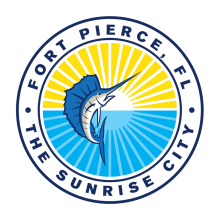Fort Pierce, Florida Utility Aims To Deliver Affordable Fiber To All
Since 1972, the Fort Pierce Utilities Authority (FPUA) has provided gas, electric, water, and natural gas services to Fort Pierce, Florida and surrounding areas. Now, inspired by efforts in cities like Chattanooga, the utility hopes to leverage that expertise to deliver affordable fiber Internet access to the city’s 45,000 residents as part of a significant expansion of its internal fiber network.
Building on Its I-Net
Since the early 2000s, FPUA has deployed 110 miles of optical fiber via its FPUAnet Communications division. Initially, the project focused on bringing ultra-fast fiber broadband to large businesses, schools, hospitals, and other community anchor institutions.
In 2018, the city decided to expand its footprint to boost the local economy and cement Fort Pierce’s future reputation as a smart city of the future. First by upgrading the company’s existing utility systems (connected to 30,000 existing customer energy meters), then by utilizing that access to drive expanded fiber connectivity to smaller business and residential customers alike.
“We wanted to look at what we can do, and what are the needs in the community,” Jason Mittler, FPUAnet manager told me. “We have other local competition…Comcast, AT&T are competitors in the area. But in the realm of symmetrical speeds, no one really offers it.”
Fort Pierce certainly isn’t alone in that regard. Even the notoriously inflated FCC data indicates that most U.S. communities rarely have access to symmetrical speeds of 100 Megabits per second (Mbps) downstream and faster, and competition at those speeds is largely nonexistent. Addressing this market failure created an obvious business expansion opportunity for FPUANet that would not only bring additional value to its existing utility customers in the form of improved reliability and cost savings, but improve regional connectivity while keeping those dollars local



